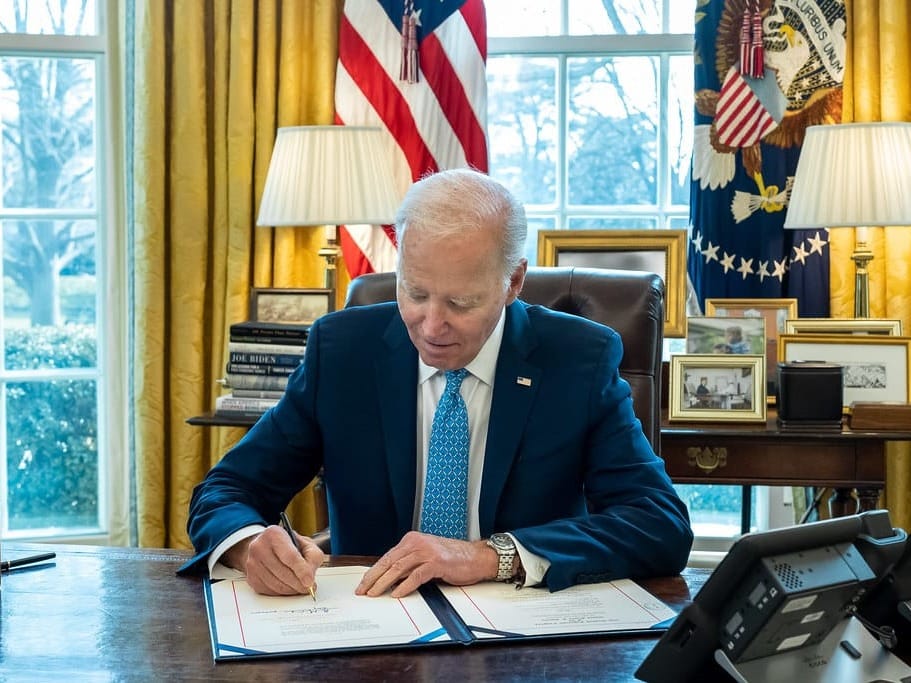The U.S. spending package signed by President Joe Biden blocks funding meant to help Palestinian refugees and investigate war crimes in Gaza.
It delivers a significant blow to the already cash-strapped United Nations, withholding hundreds of millions of dollars from the U.N. Palestinian refugee agency and other agencies dealing with the Israel-Hamas war.









